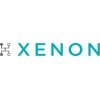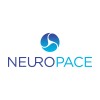
A Study to Evaluate XEN1101 as Adjunctive Therapy in Primary Generalized Tonic-Clonic Seizures
Primary Generalized Tonic-Clonic SeizuresThis is a Phase 3, multicenter, randomized, double-blind, placebo-controlled study to evaluate the clinical efficacy, safety, and tolerability of XEN1101 administered as adjunctive treatment in primary generalized tonic-clonic seizures (PGTCS).

buRst-supprESsion TO Stop Refractory Status Epilepticus Post-cardiac Arrest
Hypoxia-IschemiaBrain7 moreRESTORE is a randomized clinical trial investigating the safety and feasibility of using EEG treatment targets (burst suppression vs. seizure suppression) for post-cardiac arrest refractory status epilepticus treatment.

Fast Acute Sedation at Intensive Care vs. High-dose i.v. Anti-seizure Medication for Treatment of...
Non-Convulsive Status EpilepticusThis open-label, randomized multicenter trial aims at clarifying the standard of care of patients with non-convulsive status epilepticus not responding to treatment with benzodiazepines and at least one high-dose intra venous anti-seizure medication.

RNS System LGS Feasibility Study
EpilepsyLennox Gastaut Syndrome5 moreTo generate preliminary safety and effectiveness data for brain-responsive neurostimulation of thalamocortical networks as an adjunctive therapy in reducing the frequency of generalized seizures in individuals 12 years of age or older with Lennox Gastaut Syndrome (LGS) who are refractory to antiseizure medications. The intent is to determine the feasibility and the optimal design of a subsequent pivotal study in order to expand the indication for use for the RNS System as a treatment for patients with medically intractable LGS.

Ketogenic Therapy Effects on Electrical and Metabolic Abnormalities in Epilepsy
SeizuresApproximately a fourth of children with seizures do not respond adequately to available therapy. Ketogenic therapy has a long history as treatment for intractable epilepsy, but there is no agreement concerning how it works and what is the best way to administer it. This natural history study will collect data pertaining to both questions.

Generating Evidence on NonEpileptic, Stereotypical and Intermittent Symptoms (NESIS) in Chronic...
Chronic Subdural HematomaEpilepsy; Seizure4 moreSome patients with chronic subdural hematomas and transient neurological symptoms do not respond to standard antiepileptic drugs. The investigators think that some of them could have cortical depression rather than epileptic discharges. After an intensive literature review, the investigators found out that some antiepileptic dugs (Lamotrigine, Topiramate) were found to be efficient to treat cortical depression in other conditions (migraine, subarachnoid hemorrhage). In contrast, some other drugs (Levetiracetam) were not proved to be efficient. Knowing that, the investigators want to compare the efficacy of Topiramate against Levetiracetam in two different groups, the NESIS group (based on a NESIS score of 4 or more - increased risk of cortical depression) versus a non-NESIS group (score of 3 or less - increased risk of epileptic discharges).

Dose-Escalation Study of Cenobamate (YKP3089) in Pediatric Subjects With Partial-Onset Seizures...
Partial EpilepsyThe primary objective of this study is to assess the pharmacokinetics of cenobamate (YKP3089) in pediatric subjects with partial-onset (focal) seizures following single and multiple-dosing.

Magnetic Seizure Therapy In Bipolar Depression (MST-BpD)
Bipolar DisorderThe purpose of this study is to determine the effectiveness of MST in bipolar depression and to compare the side effects of magnetic seizure therapy (MST) and electroconvulsive therapy (ECT)

A Trial of the Efficacy and Safety of CVL-865 as Adjunctive Therapy in the Treatment of Focal Onset...
SeizuresThe purpose of this study is to assess the efficacy, safety, and tolerability profile of CVL-865 as adjunctive treatment in participants with drug-resistant focal onset seizures.

Yoga and Aerobic Exercise in Epilepsy
EpilepsyEpilepsy; Seizure1 moreIn recent years, there is growing interest in illustrating the health benefits of exercise among epilepsy. Although exercise is recommended for patients with epilepsy, there is uncertainty concerning the effects of yoga and aerobic exercise on multiple health outcomes in epilepsy. The aim of this trial is to examine the effects of yoga and aerobic exercise training on physical activity, health-related physical fitness, mental, emotional, and psychological health status, seizure frequency and quality of life.
